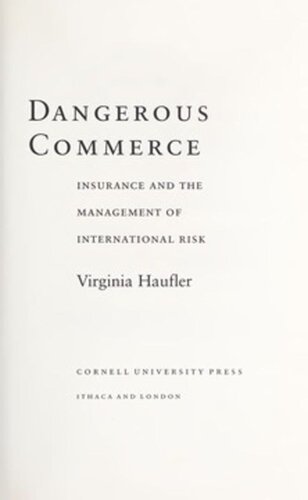

Most ebook files are in PDF format, so you can easily read them using various software such as Foxit Reader or directly on the Google Chrome browser.
Some ebook files are released by publishers in other formats such as .awz, .mobi, .epub, .fb2, etc. You may need to install specific software to read these formats on mobile/PC, such as Calibre.
Please read the tutorial at this link: https://ebookbell.com/faq
We offer FREE conversion to the popular formats you request; however, this may take some time. Therefore, right after payment, please email us, and we will try to provide the service as quickly as possible.
For some exceptional file formats or broken links (if any), please refrain from opening any disputes. Instead, email us first, and we will try to assist within a maximum of 6 hours.
EbookBell Team

5.0
48 reviewsAs businesses search increasingly for opportunities beyond their national borders, they face the risk that political change in other countries will jeopardize their efforts. Anything from minor shifts in regulations to sudden revolutions can threaten business investment, trade, and credit. Virginia Haufler shows that a crucial factor in the expansion of global markets has been the private sector's creation of a sophisticated insurance industry to redistribute the risks entailed in foreign commerce, a privately constructed safety net for international transactions. Haufler believes that the network of relationships and institutions established by the insurers constituted a privately led regime for the management of international risk. She analyzes political risks insurance during three periods of substantial uncertainty: the era from the turn of the century to the beginning of World War I, when British global power began to wane; the interwar years, leading up to the collapse of world trade and a second world war; and the 'debt crisis' decade of the 1980s. Public and private involvement in supplying insurance against international risks has varied depending on demand, the availability of resources, and the norms of what can be insured. As the scale and complexity of risks have expanded, Haufler suggests, responsibility has shifted from commercial insurers first to the state and now to multilateral institutions.